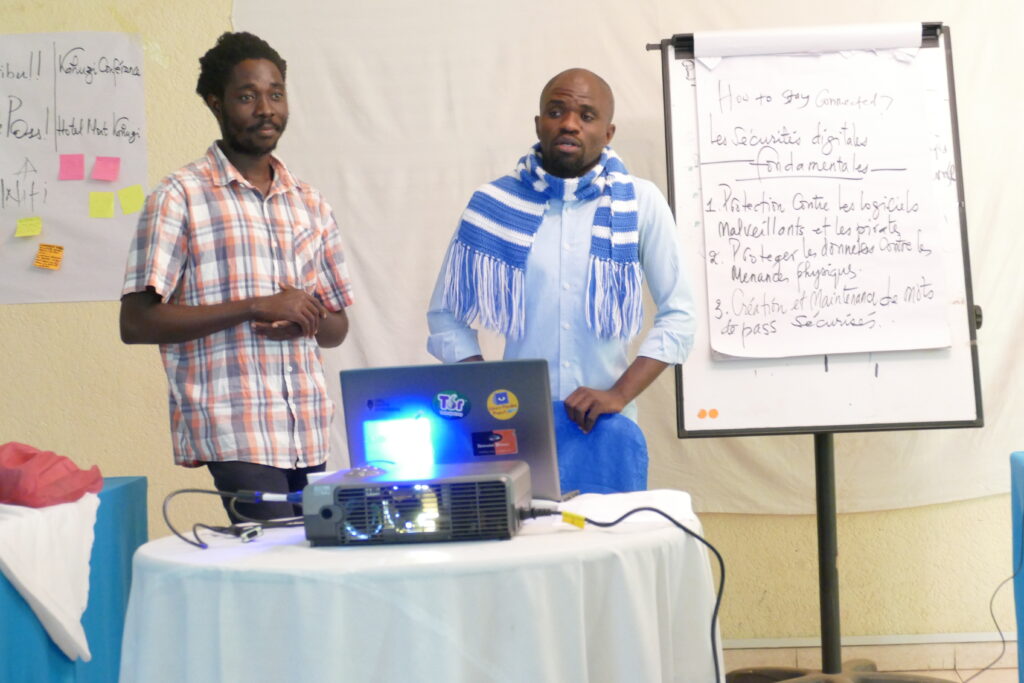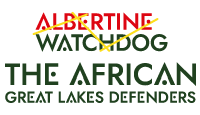Journalists and human rights activists from South and North Kivu provinces participate in digital security training.

The digital security training was organized by Agenonga Robert in collaboration with the Open Technology Fund of Radio Free Asia. The project was organized in the context of the 2018 DR Congo presidential elections. This project was delivered by Agenonga Robert and Ngetha Media Association for Peace to assist DR Congo Civil Society organizations that play critical roles in election transparency and pro-democracy activities. LUCHA, FILIMBI, and other human rights defender organizations, as well as media outlets in North and South Kivu provinces, improved their digital security practices.
Internet platforms continue to be places of expression, attracting government repression. As more people use the internet, online expression remains popular in the DRC. As traditional media outlets broadcast online, the Internet is now critical to journalism, expression, and political debate. Between 2015 and 2018, internet penetration in the Democratic Republic of the Congo increased. Political leaders, non-governmental organizations, libraries, universities, human rights activists, journalists, artists, and bloggers all use the Internet to communicate. The government has recognized the potential of internet platforms and has expanded its control through monitoring and political speech regulations. There have been complete Internet shutdowns, restrictions on online spaces, new surveillance technology, government-led misinformation campaigns targeting human rights advocates and other government critics, arrests of journalists, and website blocking. These are only the obvious controls; the Internet’s covert controls are likely to be more pronounced. The DRC government wants to dominate the Internet to the point where it undermines its political power.
the As a result, Agenonga Robert and Open Technology Funds collaborated to create this project to promote and protect digital democracy in the Democratic Republic of the Congo.
The project also designed and implemented a digital security plan, risk analysis, threats and risk assessment, training, audits, website migrations outside of DR Congo, and digital human rights content preservation, as well as establishing a fellowship for politically targeted DRC human rights defenders, artists, journalists, bloggers, and archivists. By improving local civil society actors’ use of digital technology for civic engagement in restrictive environments in DR Congo, the project empowered human rights defenders and activists and protected democracy and civic space. The digital resilience and security of pro-democracy civil society actors were also strengthened.

